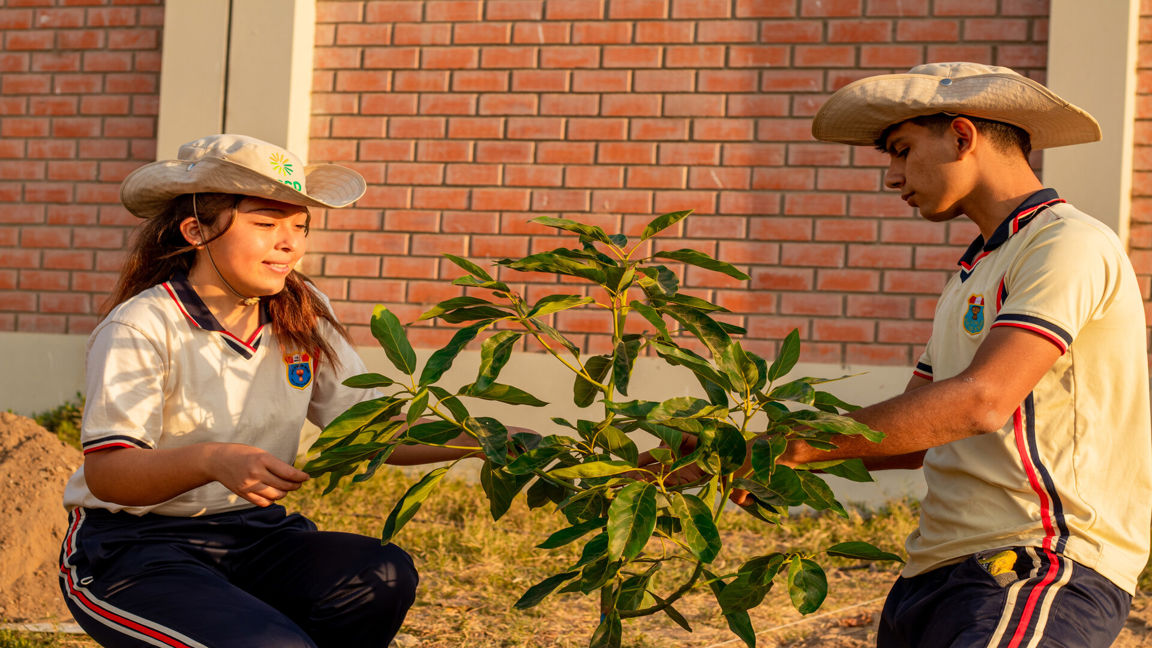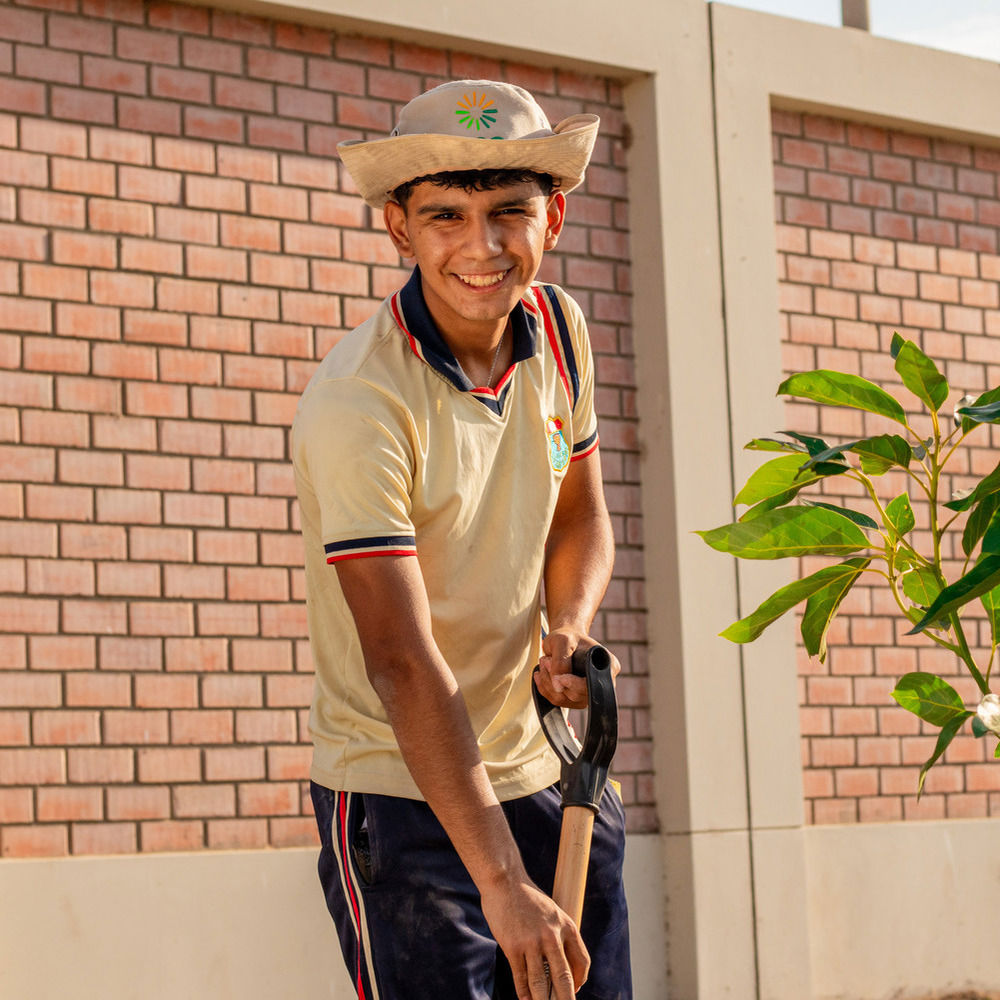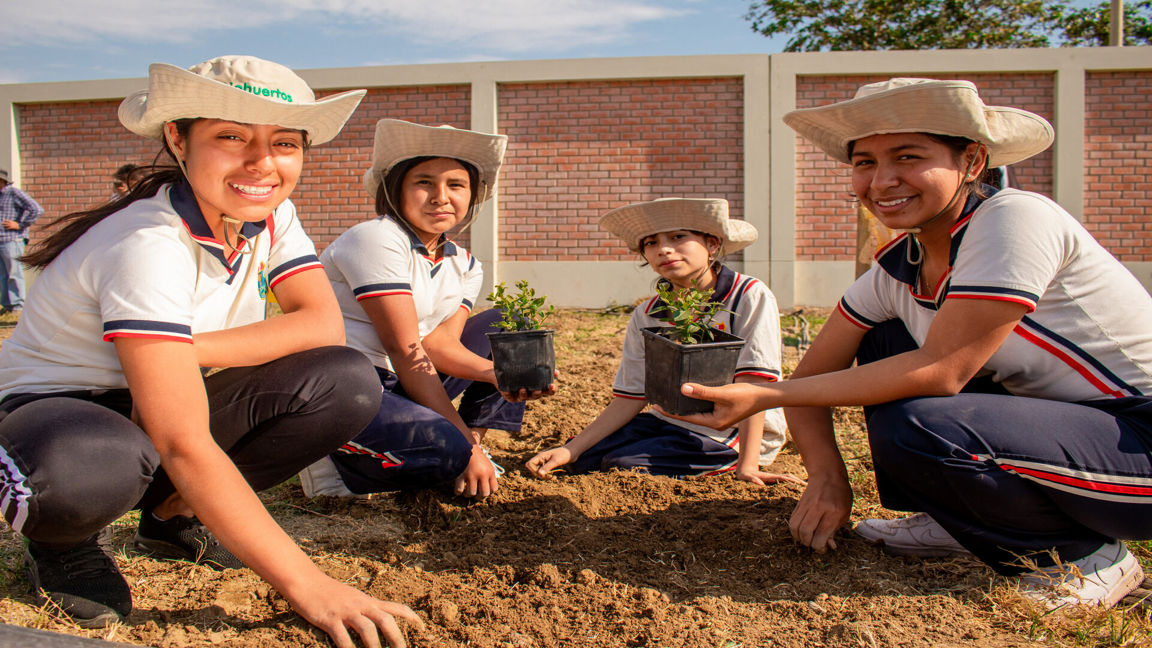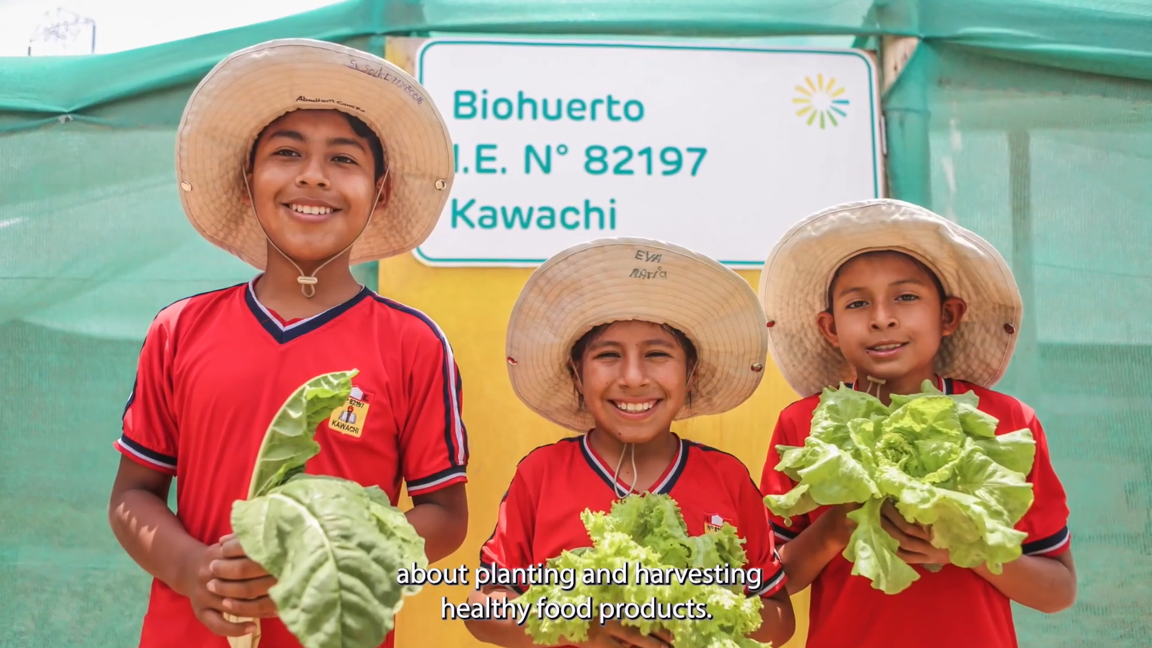In practice
In recent months, significant progress has been made on the vegetable garden project in Peru. Our handbook, which was introduced in May 2022, forms the basis of this project and helps to establish and maintain ‘forest gardens’; a variation on the traditional vegetable garden. Forest gardens have now been fully implemented at five schools, which we consider an important milestone. Providing people with the opportunity to grow their own fruit and vegetables brings local communities closer to current issues, such as nature and healthy eating habits.
A forest gardens is much more than a vegetable garden. To ensure sustainability, a food forest is designed as a scaled down ecosystem and contains an enormous variety of mainly edible plants. It mimics ecosystems and patterns found in nature, creating a resilient and productive forest gardens.
Not only does it allow students to literally reap the rewards, they also acquire responsibilities in the process. For example, maintenance is one of the key aspects highlighted in the handbook, and ensures that the forest gardens are well looked after.
Safeguarding the future together
An important aspect of this project is the collaboration between stakeholders to ensure the success of the forest gardens. This process begins when local authorities and school principals announce their formal support for the project. Teachers, parents and students also take on shared responsibilities. The growing partners involved, in this case Agrícola Cerro Prieto and Hortifrut, provide specialist knowledge in the form of agronomists and irrigation experts, and finance practical supplies such as materials, seeds and saplings so that the food forest can be established. The Nature’s Pride Foundation finances project management: from conceptualisation to implementation and overall supervision performed by Horizonte. Horizonte is an NGO dedicated to implementing projects in the fields of education, health and the environment. They organise the implementation of the forests and provide 'fruit training sessions’, designed to educate students and teachers on crop varieties.
Forest gardens create an environment that involves and benefits the entire school. Not only do they provide a local source of food, they also have a primarily educational purpose; to teach healthy eating habits and the nutritional value of the fruit and vegetables grown. It doesn’t end there by any means, as nature is an endless source of knowledge and inspiration. It can be applied to explore an array of subjects: maths by counting seeds, biology by exploring the structure of plants and flowers, and history by looking at culinary traditions. The effect of forest maintenance in generating a sense of responsibility and developing social skills shouldn’t be underestimated either.

The power of collaboration
Establishing forest gardens underlines the power of successful collaboration between stakeholders. All partners involved are active contributors, so the whole is greater than the sum of its parts.
The project was implemented in phases. The first phase involved setting up a committee in each school, comprising teachers, parents, students and representatives from the Peruvian Ministry of Education. This enabled the entire education community to recognise the importance of healthy food and the health benefits of natural products. A survey was then conducted to identify how much knowledge teachers and students had already acquired on agriculture and vegetable gardens. This information served as a starting point for the projects at each school.
Before the construction of the forest gardens began, the soil was prepared and irrigation systems installed at each school. Ten workshops were then held on organic farming, during which participating students learned to make composts and insect traps. For teachers, there was also a pedagogic workshop, designed to enhance knowledge and allow participants to exchange information.
Impact
The project is already proving successful. For example, ten theory and practice based workshops have already taken place, and 467 students and teachers have received training. The forest gardens also cover a considerable area: 3,098 m2, with hundreds of fruit trees and a multitude of other crops.
Needless to say, we're delighted with the results.
The forest gardens encourage local children to develop an interest in agriculture from an early age, and stimulate curiosity in the world around them. If people are aware of the positive role agriculture can play in their communities, future generations will be better prepared and more involved in caring for nature and have a better understanding of the vital role agriculture plays in feeding the global population.
Projects like this allow us to improve food security and knowledge among communities in our countries of origin. After all, we can only genuinely enjoy our global flavours if current and future generations can enjoy them with us too.
Would you like to know more about the handbook? Take a look or download the printable version here!


